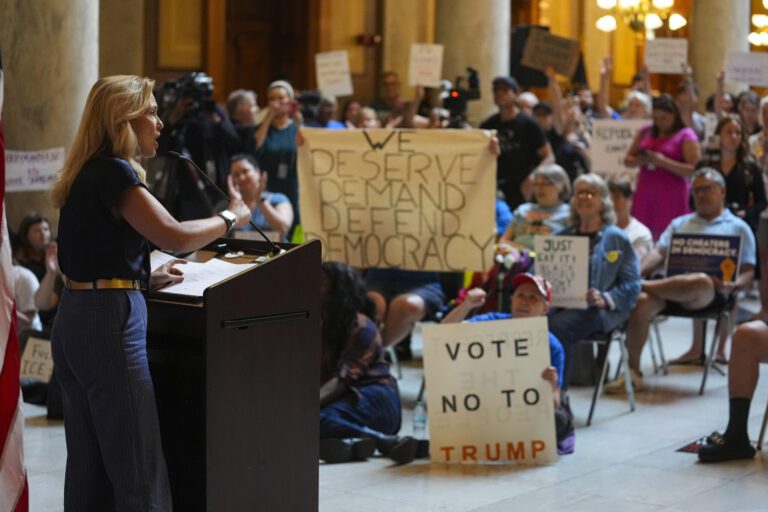Texas Democrats Return for New Special Legislative Session Amid Redistricting Tensions
As Texas Democrats prepare to return to the state capitol on Monday, a new legislative session looms large in Austin, primarily focused on controversial redistricting plans proposed by Republicans. This intense political landscape underscores the ongoing national debate surrounding voter representation and electoral fairness.
Redistricting and Its Implications
The Republican Party is on the verge of securing a redistricting plan that has been a point of contention in recent weeks. This reconfiguration could potentially net the GOP an additional five seats in Congress. However, California may counteract these gains with its own impending redistricting initiative slated for the coming months.
Texas Democrats Take a Stand
Earlier this month, several Democratic lawmakers fled Texas in response to the imminent approval of new maps that they viewed as gerrymandered. Their departure took them to states more aligned with their political beliefs, such as Illinois, New York, and California. Despite facing the prospect of substantial fines and possible arrests from Governor Greg Abbott and Attorney General Ken Paxton, the lawmakers stood firm in their beliefs.
“Do not go very far, as I believe our governor will be calling us back for another special session very, very soon,” said Dustin Burrows, Texas House Speaker.
Now, after a two-week absence, Texas Democrats are set to return, buoyed by a supportive wave of protests across the nation opposing Republican gerrymandering efforts.
Nationwide Protests & Support for Voting Rights
This past Saturday witnessed over 300 events organized by liberal organizations and labor unions across 44 states, showcasing widespread opposition to the GOP’s redistricting maneuvers. The Texas House Democratic Caucus expressed their resolve in a statement:
“The fight to protect voting rights has only just begun.”
California Enters the Battle
Compounding the political drama, California Governor Gavin Newsom recently announced plans to initiate a redistricting process that could add four or five Democratic seats to the state’s congressional representation. The proposed maps are designed to shift several competitive districts firmly into Democratic territory.
During a rally, Governor Newsom emphasized:
“We cannot unilaterally disarm… We need to stand up, not just California, other blue states need to stand up.”
Gerrymandering: A Bipartisan Concern
Former California Governor Arnold Schwarzenegger, a long-time advocate against gerrymandering, has also voiced his intentions to challenge the Democratic-led redistricting in California. He posted on social media, signaling readiness for battle against tailored districting designed to favor one political party.
Future Implications
Governor Newsom is proposing a ballot measure that, if passed, would temporarily suspend the independent redistricting commission established in California. This move would allow the Democratic-controlled legislature to draw maps for upcoming elections, but faces potential backlash from those who advocate for impartial districting processes.
In light of these developments, the political landscape is shifting rapidly. Republicans in Missouri, Indiana, and Florida are contemplating their own redistricting measures that could bolster their party’s presence in Congress ahead of the midterm elections.
Conclusion
The unfolding events in Texas and California highlight the procedural complexities and political stakes involved in mid-decade redistricting. With Democratic lawmakers reestablishing their presence in Texas and California gearing up for its redistricting fight, the battle for electoral fairness continues.
Stay informed on the latest developments regarding these crucial legislative maneuvers affecting the balance of power in Congress. For more insights on redistricting and voting rights, explore relevant resources at Vote.org and Ballotpedia.


